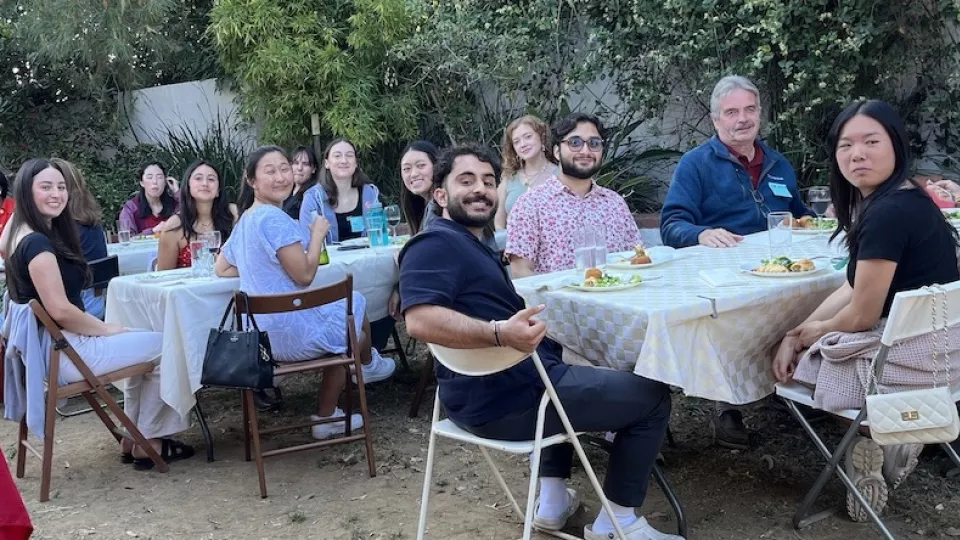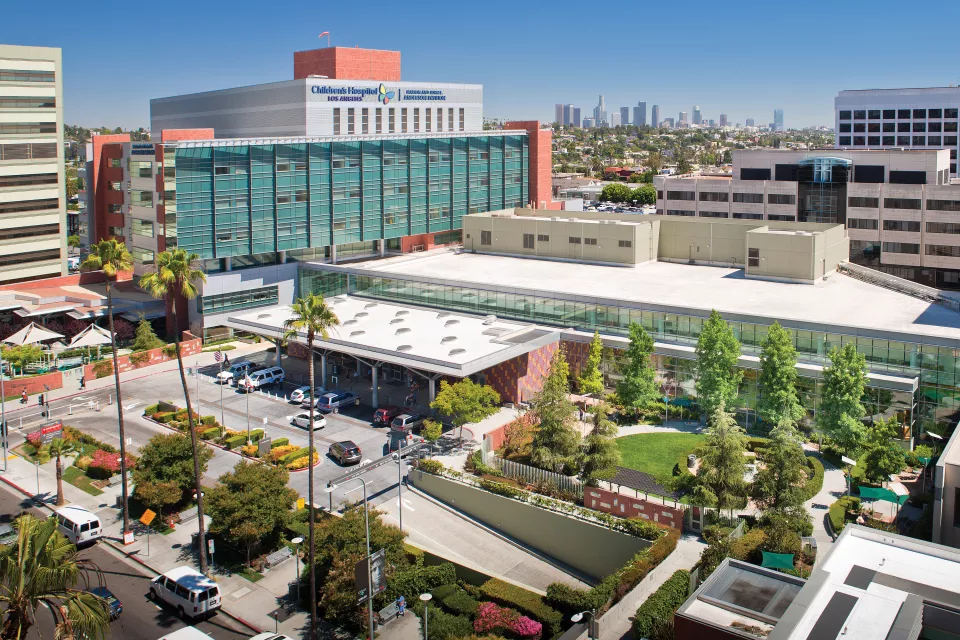
Our NIH-supported Summer Oncology Research Fellowship (SORF) Program is designed for medical students in the summer between their first and second year who are considering a biomedical career that involves cancer research. A small number of SORFites participate during summer vacations and later while in medical school. This research fellowship is held at Children’s Hospital Los Angeles and the Norris Comprehensive Cancer Center at the Keck School of Medicine.
SORF immerses medical students in cutting-edge research experiences within a team science framework in oncology and related fields. Students are matched with mentoring teams according to interests and research experience. Research projects are in pediatric, adolescent, or adult oncology, clinical, translational, or laboratory research, and/or new frontiers in bioinformatics, biomedical engineering, precision medicine, population-based research, survivorship, and other oncology-related fields.
Students work on their research projects under experienced faculty mentors, visit centers of emerging sciences, participate in social activities, interact with faculty, trainees, and cancer survivors, and engage in a dynamic interactive curriculum on selected topics in oncology, career development, research skills, research communication, and responsible research conduct. Students further enhance their skills through scientific reports, posters, and oral presentations.
Select SORfites may continue to work on their projects during the following school year in a part-time, remote, or in-person capacity to help bring the projects to completion and publish their work in peer-reviewed journals.
Students are encouraged to present their work at local, national, and international conferences and to compile their data into a manuscript for publication. As a testament to the program's success, many fellows have gone on to successful medical careers involving cancer research and related disciplines.
Prospective students may apply online. SORF’s executive committee invites the top five to 10 percent of applicants to the program. Invited students indicate their top five project/mentor choices from a provided list and will be paired with one. They connect with their mentor, read background literature, conceptualize, and submit a research proposal before the program starts, ensuring they are ready for their project upon arrival. Students from underrepresented minorities are encouraged to apply.
Learn More About the Training Program
Student Activities
Students are immersed in their research projects under the guidance and mentorship of faculty members located at CHLA and/or USC. There are opportunities to visit centers of emerging sciences, participate in social activities, interact with faculty, trainees, and cancer survivors, and engage in a dynamic interactive curriculum of selected topics in oncology, career development, research skills, research communication, and responsible research conduct. Students further enhance their skills through scientific reports and poster and oral presentations.
Many students have presented their work at local, national, and international scientific conferences and published their projects in peer-reviewed scientific literature. Through follow-up, we found that many SORFites developed successful medical careers, including cancer research and related disciplines.

Subsistence
Students participate in the on-site SORF summer program between 8 and 15 weeks.
Students receive a weekly subsistence of $600 per week while participating in SORF during the summer.
While participating in the SORF program, students are required to engage full-time on-site in their research projects and all SORF activities. These activities include, but are not limited to, a didactic curriculum, site visits, social events, team meetings, and poster and oral presentations.
Travel and housing assistance are available for qualifying students. Under their mentor's guidance, students are encouraged to obtain SORF approval to continue their research projects remotely or in person after the summer to bring them to completion, presentation, and publication. They report their effort and receive subsistence for the time they spend.
Mentorship Matching
Students will indicate their areas of research interest in their initial application and may also list specific mentors they are interested in working with. Once accepted, students will receive an updated list of available mentors and projects and will need to specify their preferences. Matches will be made based on these preferences, the student's qualifications, and the number of students requesting specific mentors or projects.
Mentors and students will be connected via email to begin communicating in preparation for the project. This may include sharing reading materials, defining specific aims, and outlining the project description. Throughout the fellowship period, mentors will guide and supervise their students' research.
Projects should have a clearly defined objective, as students will need to deliver a brief written and oral presentation at the end of the summer. Ideally, the research will yield data that can contribute to a scientific abstract and/or a peer-reviewed publication.
Program Newsletters
Stay connected with SORF! Explore the latest news, program updates, and opportunities to stay involved with our community of researchers and students.
How to Apply
Applications will open on November 1, 2024, and close on January 6, 2025, at 11:59 PST.
Applications are submitted electronically via the Summer Oncology Research Fellowship Application website.
In addition to the online application, the following documents are required:
- Personal statement
- Current CV
- Two (2) letters of recommendation
- Verification of school enrollment
- Verification of availability
Please submit your requests for letters of recommendation as soon as possible, as these usually take time.
The application details how to submit these documents, so please print those pages for your reference. Applications will not be considered complete without all necessary documents and will not be reviewed unless submitted in the proper format.
Program Fast Facts
Funded by NIH-R25 Grant, Principal Investigators: Dr. Anat Epstein & Dr. Martin Kast
Fellows Per Year: up to 20
Early Application Deadline: December 9, 2024
Regular Application Deadline: January 6, 2025
Onsite Full-time Program Duration: 8-12 weeks
2024 Dates Durations Fall Between mid-May and mid-August (depending on the duration of school vacation)
Download Program Flyer
Prior Fellows
Life in Los Angeles
Discover some of the great attractions in Los Angeles and find out where many CHLA Fellows typically choose to live.
